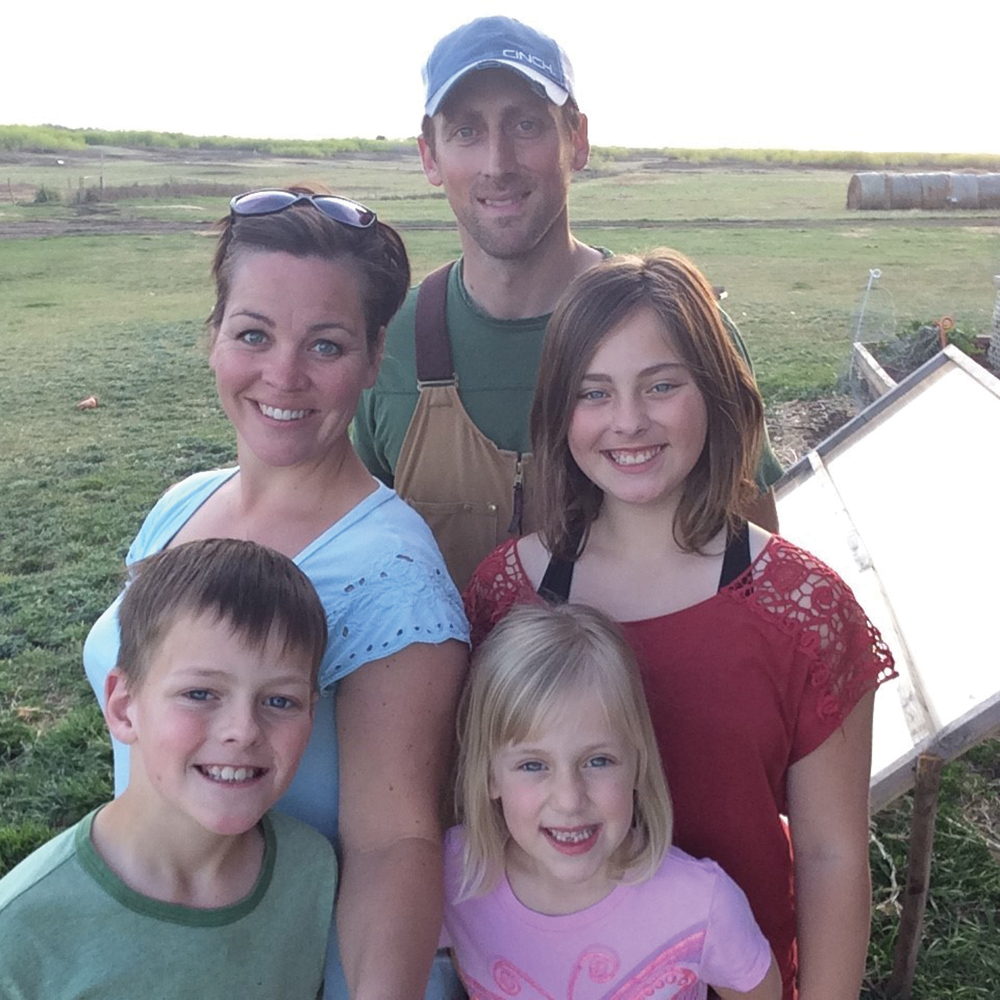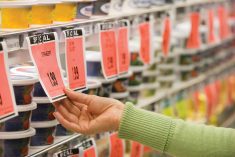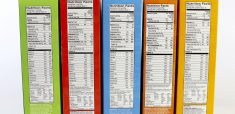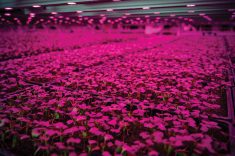Back in the pioneer days, April was known as “starvation month” because this was when food stores started to run out, and the new growing season hadn’t started yet.
This isn’t a concern for most people today, unless you’re living off the land, like the Ruzicka family. The Ruzickas have pledged to spend a year eating only food grown on their farm near Viking or obtained from local farmers. The only exceptions are sugar and salt.
“At this exact moment, the only vegetable we really have left are tomatoes and I’m rationing those right now,” Shannon Ruzicka said in late April. “If it wasn’t for such a mild, late winter and an early spring, I’d be seriously stressing out.”
Read Also

Farming Smarter receives financial boost from Alberta government for potato research
Farming Smarter near Lethbridge got a boost to its research equipment, thanks to the Alberta government’s increase in funding for research associations.
Ruzicka, husband Danny, and their three children raise beef and pork on Nature’s Green Acres farm. They started their living local experiment in August, and have been eating their own pork, chicken and beef, as well as potatoes gifted to them by Danny’s uncle. They didn’t have eggs during the winter, but their hens have started laying again. The only fruit they have left are frozen raspberries. Even though they haven’t planted their vegetable garden, Shannon has noticed the emergence of edible weeds like lamb’s quarters and dandelions, which means that things will start growing soon. The rhubarb on their property is almost four inches tall.
“If it wasn’t for the actual promise of things growing so soon, I’d be freaking,” she said with a laugh.
Family morale is high, and Shannon and Danny have noticed an abundant amount of energy from their local diet.
The changing seasons have meant that the Ruzickas have to be constantly adjusting their cooking. In the past few months, Shannon has discovered klabber, which has become the basis for many of their meals. Klabber is made from raw milk thickened at room temperature to a yogurt-like consistency. She skims the cream off the top of the klabber and uses it for butter or sour cream. Klabber can be mixed with salt or sugar to be made into pancakes or flatbread. Rhubarb or fruit can be added to turn it into muffins, and eggs can be added to turn it into waffles.
“It’s the most versatile thing in the world,” said Shannon.
But in May, the cow will dry up because she’ll be calving in July and the Ruzickas will need to figure out a new staple.
“We can never get completely reliant on one thing,” she said. “Everything has a season and everything changes. The big thing is to realize that there is no cookie-cutter meal or season.
“You can’t have greens in the middle of winter. You can’t have klabber when your cow is going to calve. You can’t have eggs when the chickens are dormant for the winter. That’s the biggest thing that we’ve learned, food-wise.”
The entire family has gained a new appreciation for things they used to take for granted.
“Our whole perspective has changed completely as we are living this,” she said. “We have a little more understanding that food is a limited resource that we have to take care of, and we have to be taking care of ourselves with it.”
The Ruzickas will end their experiment on Aug. 16.
“We’re loving it, but we’re excited about it being done,” she said. “Some of it we will carry on with. It will be so easy to slip back into convenience and we don’t want to do that.”
















